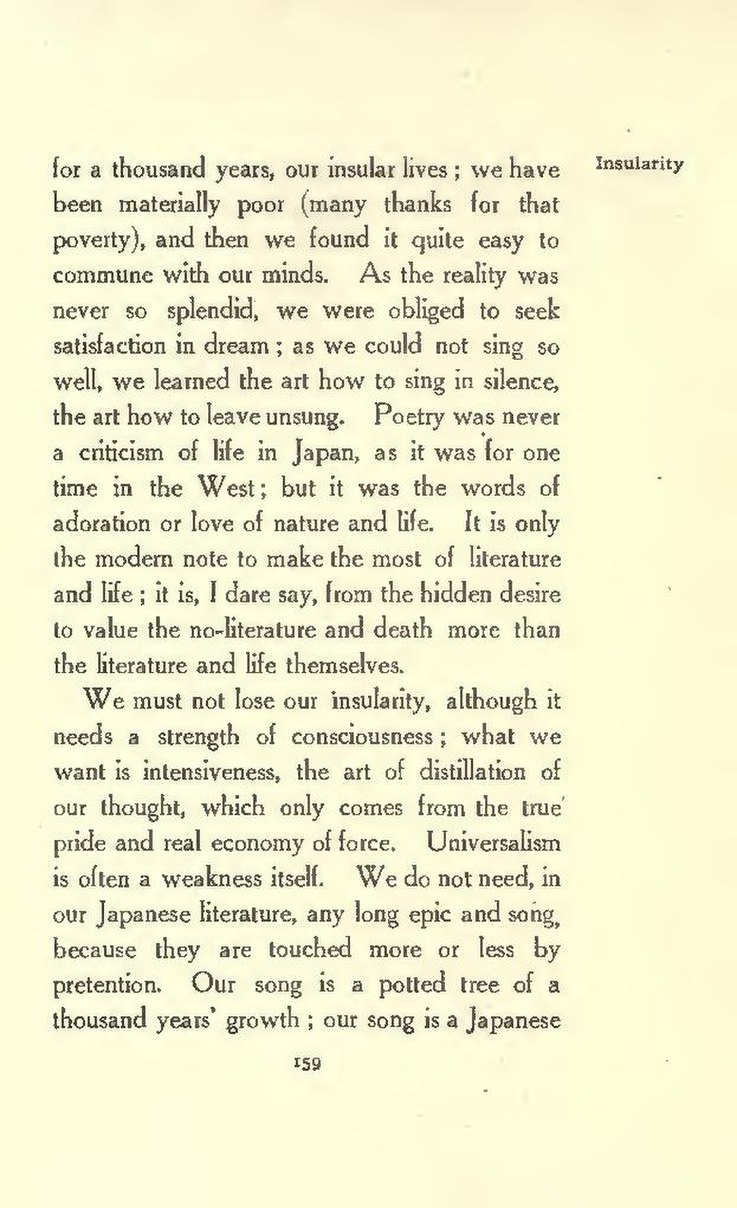for a thousand years, our insular lives; we have been materially poor (many thanks for that poverty), and then we found it quite easy to commune with our minds. As the reality was never so splendid, we were obliged to seek satisfaction in dream; as we could not sing so well, we learned the art how to sing in silence, the art how to leave unsung. Poetry was never a criticism of life in Japan, as it was for one time in the West; but it was the words of adoration or love of nature and life. It is only the modern note to make the most of literature and life; it is, I dare say, from the hidden desire to value the no-literature and death more than the literature and life themselves.
We must not lose our insularity, although it needs a strength of consciousness; what we want is intensiveness, the art of distillation of our thought, which only comes from the true pride and real economy of force. Universalism is often a weakness itself. We do not need, in our Japanese literature, any long epic and song, because they are touched more or less by pretention. Our song is a potted tree of a thousand years’ growth; our song is a Japanese
